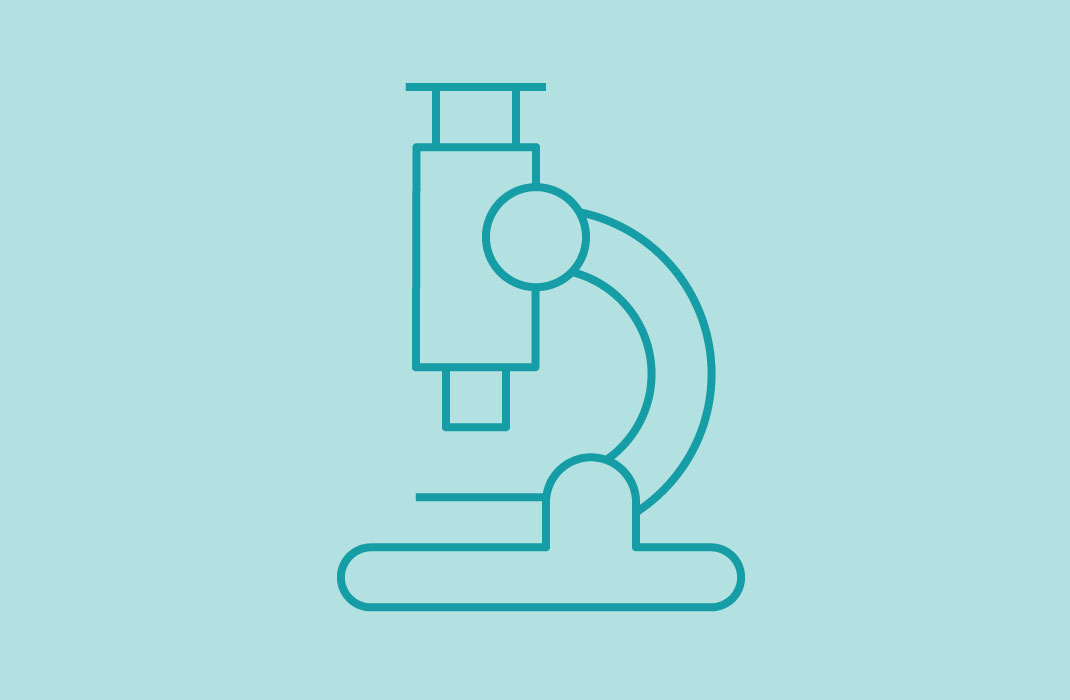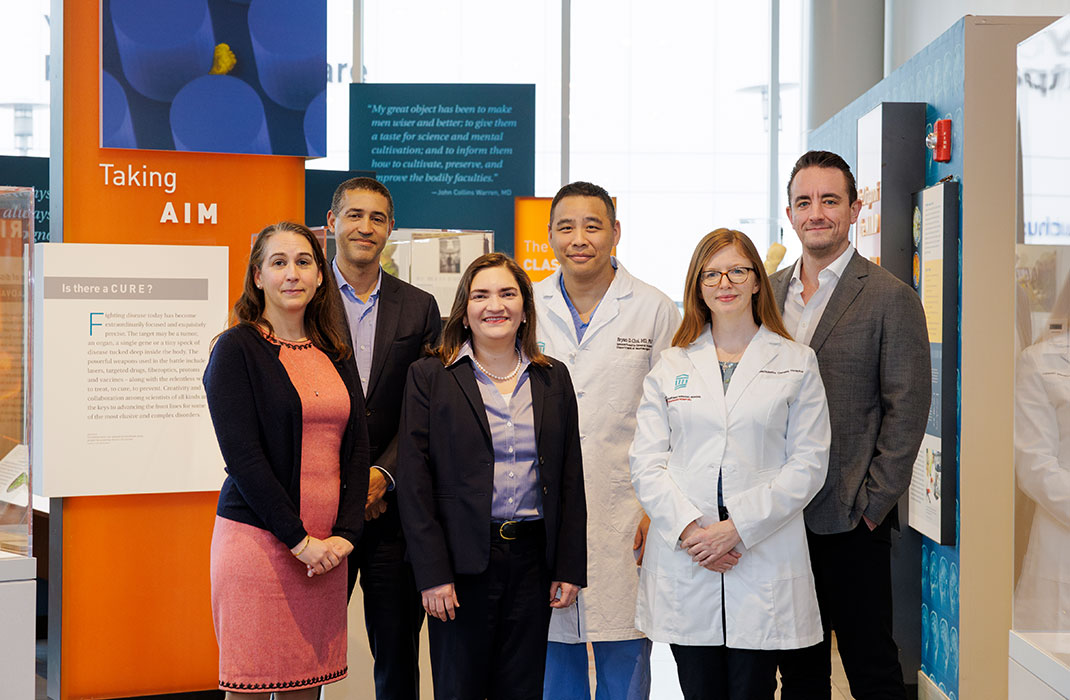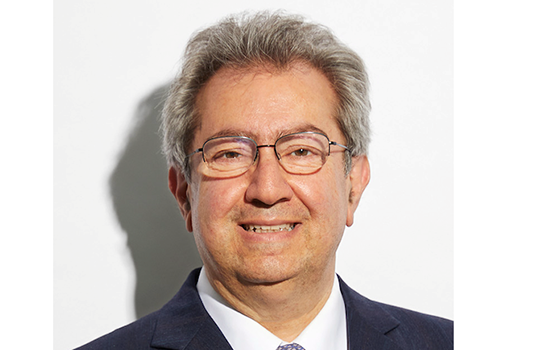Uniting cutting-edge research with world-class patient care
Discover the groundbreaking world of gene and cell therapy, where advanced medical technologies are revolutionizing patient care. At Mass General Brigham, we are at the forefront of this exciting frontier, pushing the boundaries of technology and clinical applications.
About the Gene and Cell Therapy Institute
The Gene and Cell Therapy Institute (GCTI) at Mass General Brigham is a hub of innovation and collaboration, uniting more than 500 researchers and clinicians dedicated to advancing gene and cell therapy.
The GCTI is committed to finding targeted and transformative treatments that have the potential to cure diseases or halt their progression. Led by renowned cardiac gene therapy pioneer Roger Hajjar, MD, the GCTI accelerates groundbreaking research, conducts clinical trials, and facilitates the development of FDA-approved treatments.
The Institute’s multidisciplinary approach sets it apart from others in the space. The GCTI leverages expertise from across the entire ecosystem of medical innovation and fosters an environment of shared knowledge and collective impact by bringing together researchers utilizing gene and cell therapy platforms. This collaboration ensures that scientific and clinical goals align seamlessly, ultimately leading to improved patient outcomes.
The close relationships between physicians, researchers, and patients is a critical component of what makes the GCTI successful. This continuous loop, from bench to bedside and back again, enables translation to clinical applications. The GCTI is committed to expediting the pace of discovery and development by bridging the gap between research and practice.
The GCTI operates an annual Spark grant program for Mass General Brigham researchers, providing crucial funding to fuel groundbreaking projects and drive scientific progress. This investment in cutting-edge research ensures that Mass General Brigham remains at the forefront of gene and cell therapy advancements. The GCTI also offers expertise in manufacturing, regulatory, clinical trials, and core laboratory services.
The GCTI's annual research symposium is an exploration of the dynamic research landscape within the Mass General Brigham community, uniting trailblazers who are driving advancements in gene therapies, cell therapies, and gene editing techniques to combat human diseases.
Our team
The Gene and Cell Therapy Institute's leadership actively fosters and establishes both internal and external connections to drive forward the advancement of gene and cell therapy treatments and groundbreaking discoveries.
Roger J. Hajjar, MD
Head, Gene and Cell Therapy Institute
Marcela V. Maus, MD, PhD
Associate Head & Head of Cell Therapies, Gene and Cell Therapy Institute
Paula O’Keeffe Endowed Chair, Mass General Cancer Center
Director, Cellular Immunotherapy Program, Massachusetts General Hospital
Professor of Medicine, Harvard Medical School
Attending Physician, Hematopoietic Cell Transplant & Cell Therapy Program, MGH
Nathan L. Yozwiak, PhD
Head of Research, Gene and Cell Therapy Institute
Natalie Artzi, PhD
Head of Structural Nanomedicines, Gene and Cell Therapy Institute
Associate Professor, Harvard Medical School
Associate Faculty Member, Wyss Institute
Principal Research Scientist, MIT
Angela Shen, MD, MBA
Head of Regulatory, Gene and Cell Therapy Institute
Dana M. Hammill, MS, MBA
Head of Manufacturing & CMC, Gene and Cell Therapy Institute
Meini S. Shin, MBA
Head of Strategic Planning & Operations, Gene and Cell Therapy Institute
Omar Abudayyeh, PhD
Director of Gene Editing, Gene and Cell Therapy Institute
Assistant Professor of Medicine, Harvard Medical School
Investigator, Division of Eng. in Medicine, Department of Medicine, Brigham and Women's Hospital
Department of Stem Cell and Regenerative Biology, Harvard University
Robert Alexander Wesselhoeft, PhD
Director RNA Therapeutics, Gene and Cell Therapy Institute
Nandhitha Uma Naresh, PhD
Project Manager, Gene and Cell Therapy Institute
Isabella M. Zamora, MPH
Program Coordinator, Gene and Cell Therapy Institute
Susanti Sugianto, MSF
Program Coordinator, Gene and Cell Therapy Institute
Contact us
Together, we can shape the future of medicine to make a profound impact on patient lives.
What are gene and cell therapies?
Gene and cell therapies are advanced medical treatments aimed at stopping or slowing disease progression. Gene therapy involves replacing or modifying faulty genes with corrected versions, while cell therapy replaces or repairs damaged cells. Gene editing, utilizing tools like CRISPR, enable targeted and programmable repair of damaged gene products. Mass General Brigham offers a range of FDA-approved gene and cell therapy treatments for various medical conditions, including certain types of cancer, hereditary diseases, and blood disorders.
Types of therapies
Many diseases can involve a genetic component — a missing gene, multiple copies of a gene, or a gene that is structurally defective. Gene therapy is the process of replacing or modifying genes to correct a deficiency, sometimes by altering the DNA sequence of the target gene or by modifying expression of a gene by turning it off or on. Gene therapy can have an especially profound effect in congenital diseases where the disease is associated with malfunction of a single gene. Researchers are working to identify such genes and develop therapies to replace or modify genes.
Cell therapy involves replacing or modifying cells to treat disease. Cell therapy can use cells from another person (allogenic) or the person’s own cells (autologous), which may or may not be genetically altered.
Autologous, modified cell therapy is personalized to treat an individual’s condition where scientists take the person’s own cells and genetically change them outside the body, expand the number of modified cells, and then reinfuse these modified cells to produce a therapeutic benefit. Such therapies alter the patient's cells so their immune system can now target and destroy previously stealth diseased cells.
Examples of cells that are modified to treat disease include T-cells (commercialized as chimeric antigen receptor T cells; CAR-T cells), B-cells, Natural Killer (NK) cells, Tumor Infiltrating Lymphocytes (TILs), and Dendritic Cells (DCs).
Gene editing is the modification of a cell’s DNA with great precision using tools, such as CRISPR-based biotechnologies, that enable programmable and targeted repair of damaged gene products.
Treatments
Mass General Brigham is proud to offer FDA-approved gene and cell therapy treatments for the following conditions:
- CAR T-cell therapy for lymphoma and leukemia
- Multiple myeloma
- Beta-thalassemia
- Retinal dystrophy
- Cartilage defects - knee
- Cerebral adrenoleukodystrophy
- Spinal muscular atrophy
- Neurodegenerative diseases
- Duchenne muscular dystrophy
Meet our researchers
Get to know some of the brilliant minds driving research at Mass General Brigham.
News & highlights
Mass General Brigham and its diverse teams are leading novel approaches in innovation and improved patient care.
-

Mar 20, 2025
-

Feb 24, 2025
-

Jan 17, 2025
-

Nov 25, 2024
-

Nov 13, 2024
-

Sept 3, 2024
-

May 7, 2024
-

March 13, 2024
-

Feb 12, 2024
-

Nov 18, 2023
-

Nov 13, 2023
-

Aug 17, 2023




